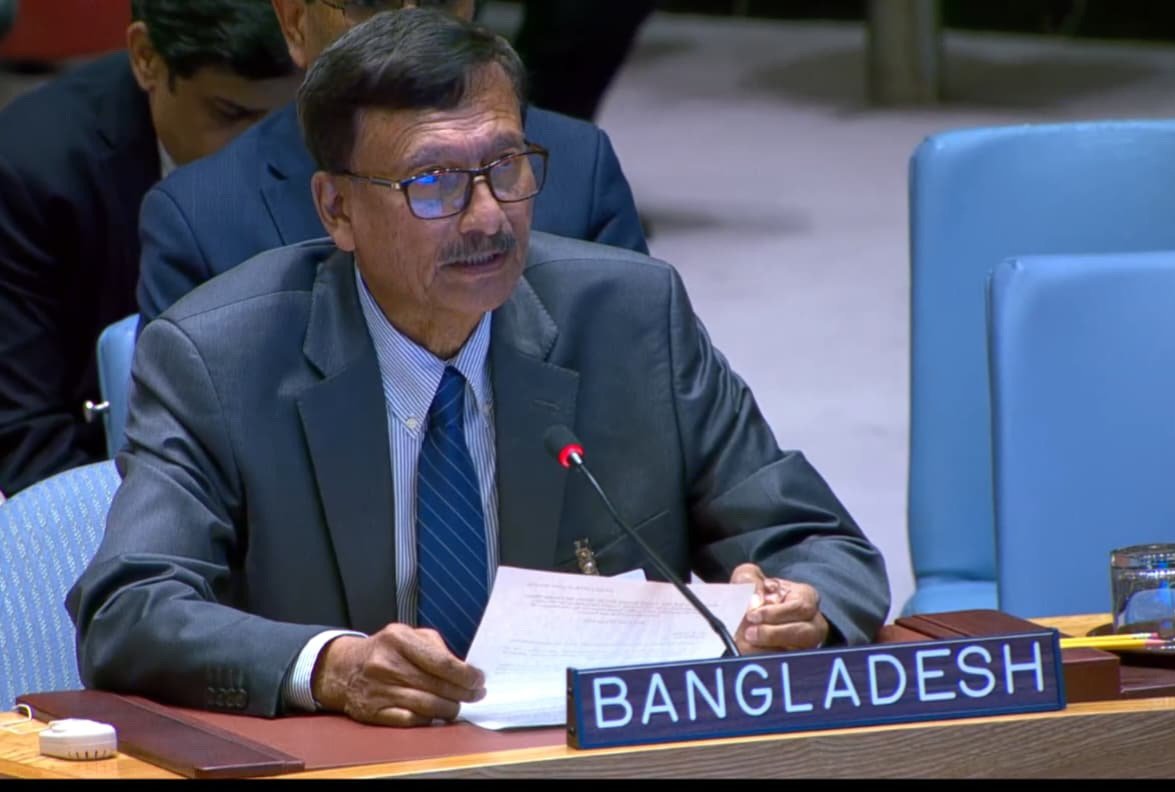Rohingya Repatriation: Dhaka calls for renewed international attention

Foreign Affairs Adviser Md Touhid Hossain, now in New York, on Thursday called for "renewed international attention and action" to ensure the repatriation of the Rohingyas with safety and rights.
"This is not only a matter of justice, but also vital for preventing the root cause of a potential instability in our region," he said.
For over eight years, Bangladesh has been hosting over 1.2 million Rohingya people who fled their own country Myanmar due to persecution by the military regime.
"Our humanitarian act has put us in immense socio-economic and environmental challenges, and the situation is now posing new security risks," Adviser Hossain said while delivering his statement at the UN Security Council open debate titled “Poverty, Underdevelopment and Conflict: Implications for the Maintenance of International Peace and Security.”
This Council, he said, is well aware that protracted crises often emerge from systemic marginalisation.
The current development and security landscape are shaped by long-standing inequities – many of which are rooted in centuries of political subjugation and economic exploitation, said the Foreign Affairs Adviser.
"Correcting these imbalances is our shared responsibility," he said.
In this context, Hossain said, they must aim for a future shaped by the bold aspiration of “three zeros” propounded by Chief Adviser Professor Muhammad Yunus: zero poverty, zero unemployment, and net zero carbon emissions.
"These are not just development goals—they are foundational to lasting peace and stability," said the Adviser, adding that realizing this vision will require an alignment of peacebuilding efforts with inclusive and forward-looking development strategies.
"Here, we see a strong merit in closer coordination across the three pillars of the UN," Hossain said.
He said it is imperative that this Council works closely with ECOSOC and Peacebuilding Commission to ensure that peacebuilding strategies are in conformity with development realities.
"Instead of only investing in recovery, we must also build resilience. Let us enable people, especially the most vulnerable and give them the opportunity to thrive," Hossain said.
In doing so, he said, they see the transformative potential of “social business” pioneered by Nobel Laureate Professor Muhammad Yunus.
"By prioritising people over profits, such enterprises boost inclusive growth and reduce grievances that would otherwise lead to unrest. We believe this approach offers valuable lessons worth replicating globally," Hossain said.
Bangladesh remains committed to doing its part, and to working alongside all concerned in pursuit of a more just, peaceful, and secure world, he mentioned.
The Adviser thanked the Presidency of Guyana for organizing this "timely and important" debate, according to the Permanent Mission of Bangladesh to the United Nations.
"We live in a world where poverty, under-development, and conflict – all are interconnected. If we are to preserve international peace and security, addressing these challenges is not optional - it is essential," said the Foreign Affairs Adviser.
In Bangladesh, he said, they have always viewed young people as agents of positive change.
"From the historic Language Movement in 1952 to our liberation struggle, and most recently the student-led “monsoon revolution” – our youth have consistently led the way in fighting against inequalities and injustice," Hossain said.
He said they are also deeply aware of the consequences when young people are denied access to education and employment.
"Across regions and contexts, large segments of youth – when left behind – can become vulnerable to manipulation, and violent ideologies that exploit identity and faith," Hossain said.



